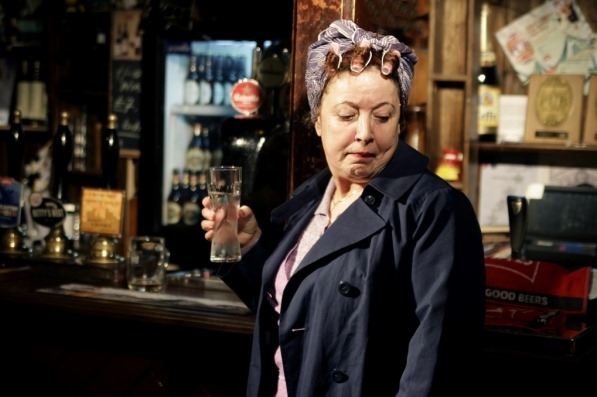Last Orders Should Not Be Called on Theatre Pubs
With the Lass O’Gowrie in Manchester no longer a theatre pub, Jo Ing looks at why these great venues should not disappear.

© Lass O'Gowrie
The landlord and founder of the Greater Manchester Fringe, Festival Gareth Kavanagh, has had his final day at the Lass O’Gowrie pub after a long-going struggle to survive the BBC's move from Manchester's Oxford road and despite being named Britain’s best pub of 2012. While the brewer Greene King says it will re-open with a new tenant, the pub’s upstairs theatre will almost certainly remain closed. Salford’s Black Lion and its upstairs community arts space recently went the same way blaming a lack of passing trade. At the moment, as a permanent venue, the nearby pub theatre upstairs at the Kings Arms in Salford seems to be the only one bucking the Greater Manchester trend.
For Kavanagh, pub theatre as a whole has a problem. He says "If you are in the hands of brewery’s who have no interest in theatre you have a problem … if you sublet off the pub below and there’s no link between the two, that’s a problem. Maybe because there’s more bars out there we should do stuff in other places … it is pub theatre but maybe we are not going to have it in pubs."
So as we mourn the loss of the venue that bought us Coronation Street Live and a festival devoted to Dr Who, here are five great things about pub theatre:
1. You won’t need opera glasses.
Kavanagh says "I think there is a naughty excitement of going to little parts of buildings you’re not supposed to go to and cramming into little rooms". As Kavanagh adds there are one or two critics who will always begin their reviews "upstairs is hot and cramped", but there are few "proper" theatres where you can be that close to the action.
2. Scenery is sometimes unnecessary.
There is something really special about those productions that bring the performance into the heart of the pub itself. Operaupclose performed a critically acclaimed production of La Boheme at the Cock Tavern in London where part of the action was bought downstairs and opera singers stood on tables next to regular drinkers. The Lass O’Gowrie’s Coronation Street Live, the brainchild of Gareth Kavanagh, had the landlady of the Rovers pulling real pints behind the bar.
3. It’s a pub.
Being able to drink is of course a huge attraction. Yes a lot of theatres allow you to decant your drink into a plastic glass and take it in from the bar but can you take your pint of ale? Between overpriced minstrels and a pack of pork scratchings I know which I’d prefer.
4. It’s cheap.
This of course depends on the venue and there are many in established pub theatres (mainly in London), which are very expensive to use. Actress Emma Laidlaw, who starred in the production of Coronation Street Live, says the Lass O’Gowrie’s free rehearsal space was essential for actors and companies because they often need a place "to get it off the ground and get it started" before going to a bigger venue.
5. Finally, there can be an unusual clientele.
In the more traditional boozers you can tell a theatregoer from a regular and usually the two don’t mix. Occasionally though, a quick round of the pub is made and somebody at the bar shrugs their shoulders picks up their pint and decides to head upstairs. I’ve seen a stag party persuaded to watch a piece at Salford’s Kings Arms and almost become the whole audience. The aforementioned La Boheme’s proudest review was from a drunken local shouting "this is feeeatre" throughout the second half. It can bring new drinkers to a pub or persuade a regular to try a bit of theatre instead of the football on the screen downstairs.
You can hear more from Gareth and some of the regulars at the Lass O’Gowrie on the Manchester Corridor podcast (http://manchestercorridor.wordpress.com/) from Tuesday 7 January.












